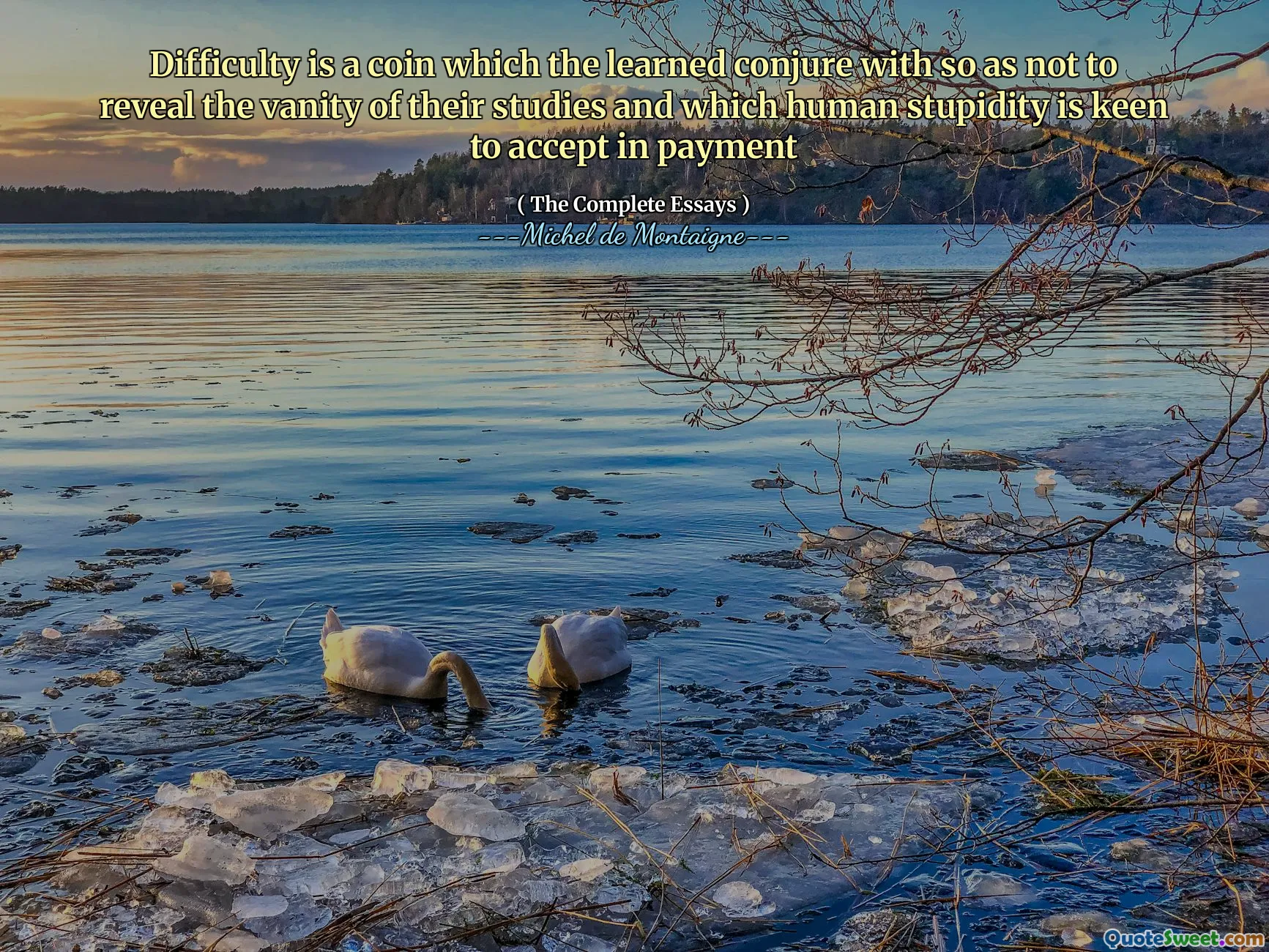
Difficulty is a coin which the learned conjure with so as not to reveal the vanity of their studies and which human stupidity is keen to accept in payment
Michel de Montaigne’s observation here highlights a nuanced critique of how knowledge and ignorance interact in society. The metaphor of difficulty as a 'coin' cleverly suggests that complexity and obscurity are tools wielded by the educated to perhaps inflate the value or significance of their learning. This implies a subtle vanity among scholars, who may consciously or unconsciously use the appearance of difficulty to mask the triviality or limited utility of what they have studied. It’s a reflection on the performative aspect of knowledge — how the learned might mystify their work, not purely to enlighten but to maintain status or reputation.
At the same time, Montaigne points to human folly, where ignorance or stupidity is 'keen to accept in payment' this currency of difficulty. There is an element of social contract here, where the unlearned readily pay the cost of confusion or complexity without demanding clear understanding. This highlights a common interpersonal dynamic regarding knowledge: those who do not understand are often willing or resigned to accept the inscrutable language of experts, perhaps out of trust, awe, or fear of appearing ignorant themselves.
Ultimately, this quote invites reflection on accessibility and transparency in communication, intellectual humility, and the relationship between appearance and substance in scholarship. It challenges both the producer and consumer of knowledge to be aware of the potential for vanity, obfuscation, and uncritical acceptance, urging clarity and sincerity in inquiry and teaching. The paradox described here remains highly relevant even in modern contexts, where complexity is sometimes mistaken for profundity, and the struggle for genuine understanding continues.








